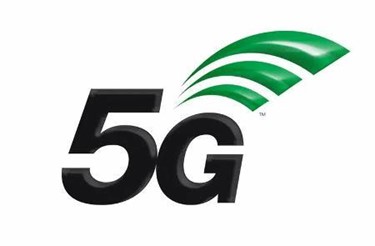The Week In 5G: 6/22/2018 – Ericsson's 5G Hopes, Vodafone 5G Trials, VR Live Demo To Be Tested, South Korea Completes 5G Spectrum Auction
By Jof Enriquez,
Follow me on Twitter @jofenriq

Ericsson is pinning its hopes for long-term growth on the wide adoption of 5G across multiple industries. The world’s second largest supplier of mobile network equipment is in the midst of a recovery plan to overcome tepid growth. However, the company expects growth to pick up as 5G networks go live next year, and to accelerate in the coming decade, when 5G will become pervasive.
The Swedish company believes new mobile businesses enabled by 5G technology in 10 broad sectors — such as manufacturing, energy, and public safety — could drive growth up to 36 percent higher in telecom industry services (approximately $619 billion in incremental industry revenue) by 2026, Christian Hedelin, head of strategy at Ericsson’s networks business, told Reuters.
“There are enormous possibilities to address. It’s up to us as an industry to make sure as much as possible of this potential value will materialize,” Hedelin told the news agency.
He added that the market for radio access network (RAN) equipment will be flat until 2020 before growing as 5G upgrades kick in for faster phones, fixed wireless video access becomes a better substitute for fiber or cable broadband connections, and new industrial business and consumer use cases mature through developmental stages.
5G services are not expected to become ubiquitous worldwide until the middle of the next decade. However, operators in countries leading the 5G race are quickly rolling out 5G trials now.
In the United Kingdom, Vodafone announced this week what it calls 'the most comprehensive testing' of 5G to date, involving more than 40 sites in seven UK cities: Birmingham, Bristol, Cardiff, Glasgow, Liverpool, Manchester, and London. The 5G trials will start between October and December this year.
"We want to make 5G and new fibre broadband services available to consumers and business throughout the UK, delivering a Gigabit society for all," said Vodafone's chief executive Nick Jeffery, according to an IT Pro report. "We will also be bringing ultra-fast 4G to several hundred sites in hard to reach rural areas this year, building on our position as the network that offers the best voice coverage in the UK."
Vodafone spent £378 million — the most among all bidders during the recent spectrum auction by UK regulator Ofcom — to get a 50 Mhz slice of the 3.4GHz spectrum.
By 2020, Vodafone said it will start offering full 5G services in the UK, including augmented and virtual reality technology applications.
VR will be showcased during Singapore's first 5G live trial by the end of the month. Singapore mobile operator M1 will be using Huawei’s 5G equipment that operates in the 28GHz millimeter wave frequency band and supports a theoretical peak download throughput exceeding 20 Gbps, according to Computer Weekly's Aaron Tan.
“This live demo is a small but significant step in our journey towards next generation 5G mobile networks,” said Denis Seek, M1’s chief technical officer.
According to Tan, M1 and Huawei also will test the first 3.5GHz with non-standalone standard compliance field trial in Southeast Asia by the end of 2018, and the first 28GHz and 3.5GHz with standalone standard compliance field trial in Southeast Asia by mid-2019.
With the 5G live trial, Singapore joins China, Japan and South Korea as the frontrunners in 5G deployment in Asia.
South Korea this week announced this week the completion of its 280MHz bandwidth of 3.5GHz spectrum and 2400MHz bandwidth of 28GHz spectrum auctions to local telcos, paving the way for 5G rollouts starting in December.
SK Telecom and KT each won 100MHz of the 3.5GHz spectrum, while LG Uplus secured 80MHz. All three telcos received 800MHz of the 2.8GHz spectrum, reported ZDNet. The auctions raised 3.6183 trillion won in total. Seoul is expected to be the first city to experience 5G services this year. Korean telcos are permitted to use the 3.5GHz spectrum for 10 years and the 28GHz spectrum for five years.
